https://github.com/logzio/apollo
NOT MAINTAINED. Apollo - The logz.io continuous deployment solution over kubernetes
https://github.com/logzio/apollo
continous-deployment jenkins kubernetes microservices no-longer-maintained ui
Last synced: 8 months ago
JSON representation
NOT MAINTAINED. Apollo - The logz.io continuous deployment solution over kubernetes
- Host: GitHub
- URL: https://github.com/logzio/apollo
- Owner: logzio
- License: apache-2.0
- Archived: true
- Created: 2016-03-09T14:01:46.000Z (over 9 years ago)
- Default Branch: master
- Last Pushed: 2021-02-22T08:44:40.000Z (almost 5 years ago)
- Last Synced: 2024-11-03T03:32:05.325Z (about 1 year ago)
- Topics: continous-deployment, jenkins, kubernetes, microservices, no-longer-maintained, ui
- Language: Java
- Homepage:
- Size: 46.8 MB
- Stars: 24
- Watchers: 52
- Forks: 6
- Open Issues: 54
-
Metadata Files:
- Readme: README.md
- License: LICENSE
Awesome Lists containing this project
- awesome-opensource-israel - Apollo - A simple, lightweight, Continuous Deployment (CD) solution on top of Kubernetes.   (Projects by main language / Old Projects)
- k8s_awesome_document - Apollo - --Apollo是一个开源应用程序,为团队提供了自助用户界面,用于创建和部署他们的服务到Kubernetes。Apollo允许操作人员查看日志,只需点击一下鼠标就可以将部署恢复到任何时间点。阿波罗具有灵活的部署权限模型。每个用户只能部署他需要部署的内容。 (🏗相关开源项目 / Development Tools)
- awesome-kubernetes - Apollo - Open Source application providing teams with self service UI for creating and deploying their services to Kubernetes. (Continuous Delivery / [Jenkins](#jenkins))
README
# THIS PROJECT IS NO LONGER MAINTAINED
[](https://travis-ci.org/logzio/apollo)
# Apollo
### What is Apollo?
Apollo is a simple, lightweight, Continuous Deployment (CD) solution on top of Kubernetes.
Apollo can integrate with any existing building process you might have in place. All you need to do is notify it of a ready artifact, and that's it.
Apollo also provides restricted access on top of Kubernetes.
Each user has fine-grained permissions, to ensure safe deployments.
Please refer to the [Wiki](https://github.com/logzio/apollo/wiki) for more extensive documentation.
### Main Features
- Deploy a combination of a Kubernetes deployments and services into a designated Kubernetes cluster and namespace.
- View logs, revert deployments and get back to any point in time with just one click.
- Manage multiple Kubernetes clusters and multiple namespaces in the same cluster.
- Full permissions model for deployments. Each user can deploy only what he needs to deploy.
- Live querying on Kubernetes to get the current status of the deployments. You can also view pods status, view logs from each pod, and restart each pod.
- Full RESTful API and Java client to automate whatever you need, or deploy automatically.
- Once initially deployed, you can deploy future versions of Apollo, using Apollo!
#### Deployment
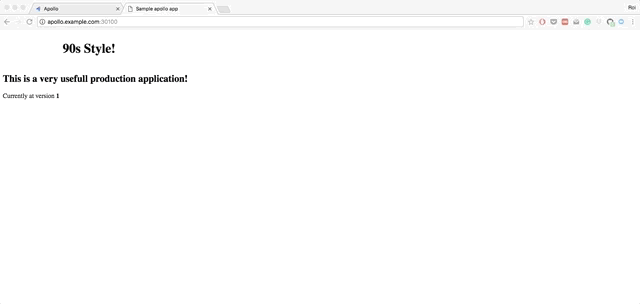
#### Getting logs of a running pod
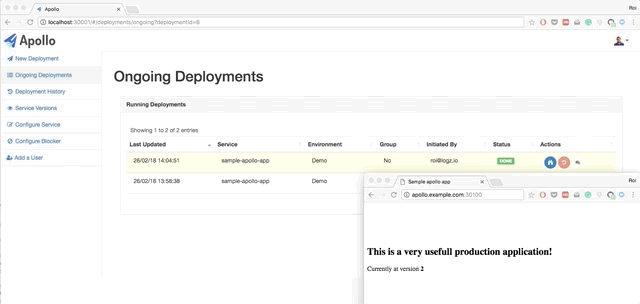
#### Exec into a running pod
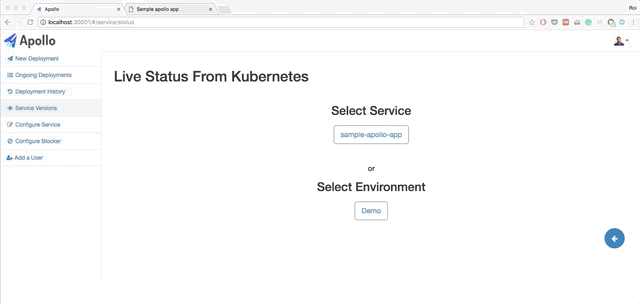
#### See ongoing deployments
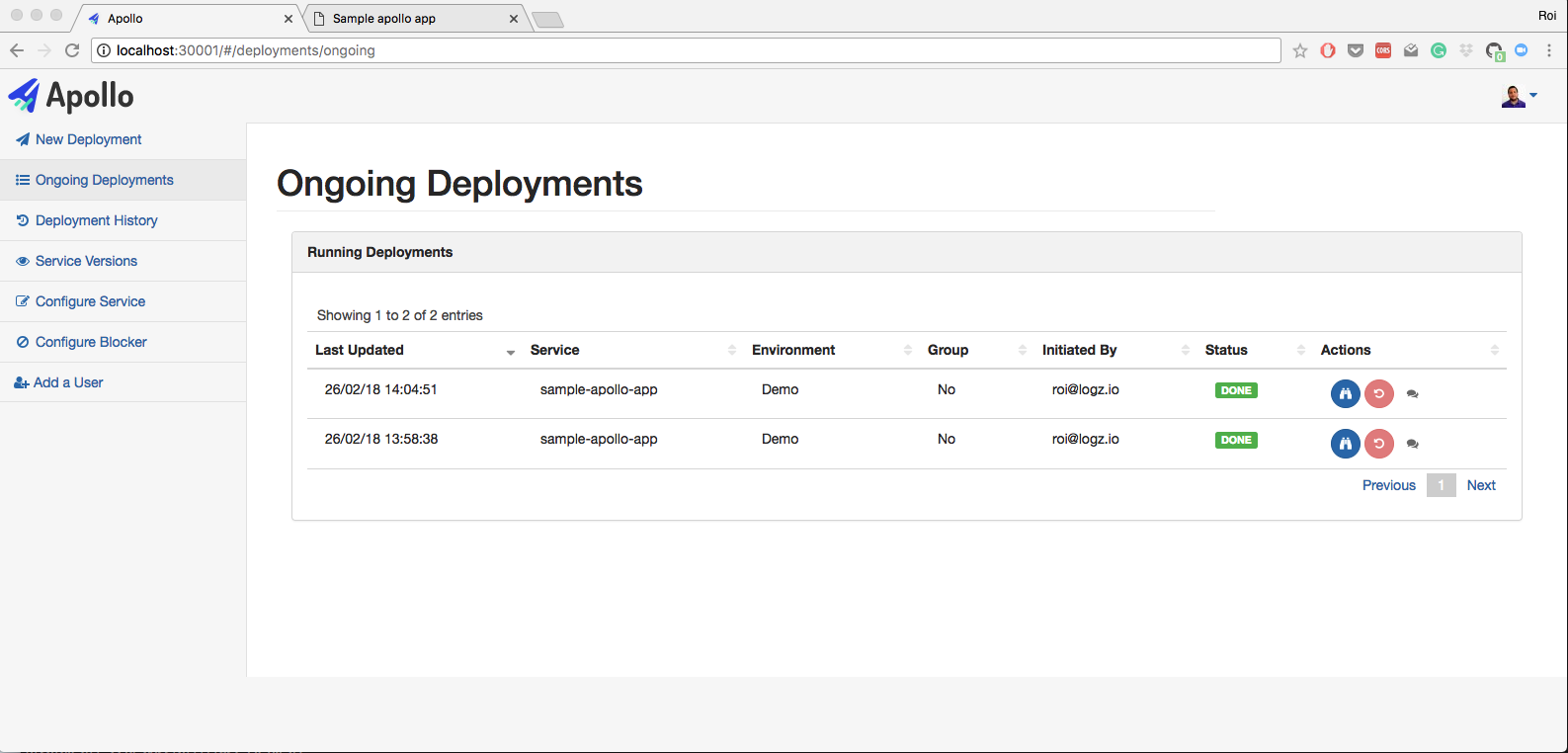
#### Get full deployment history
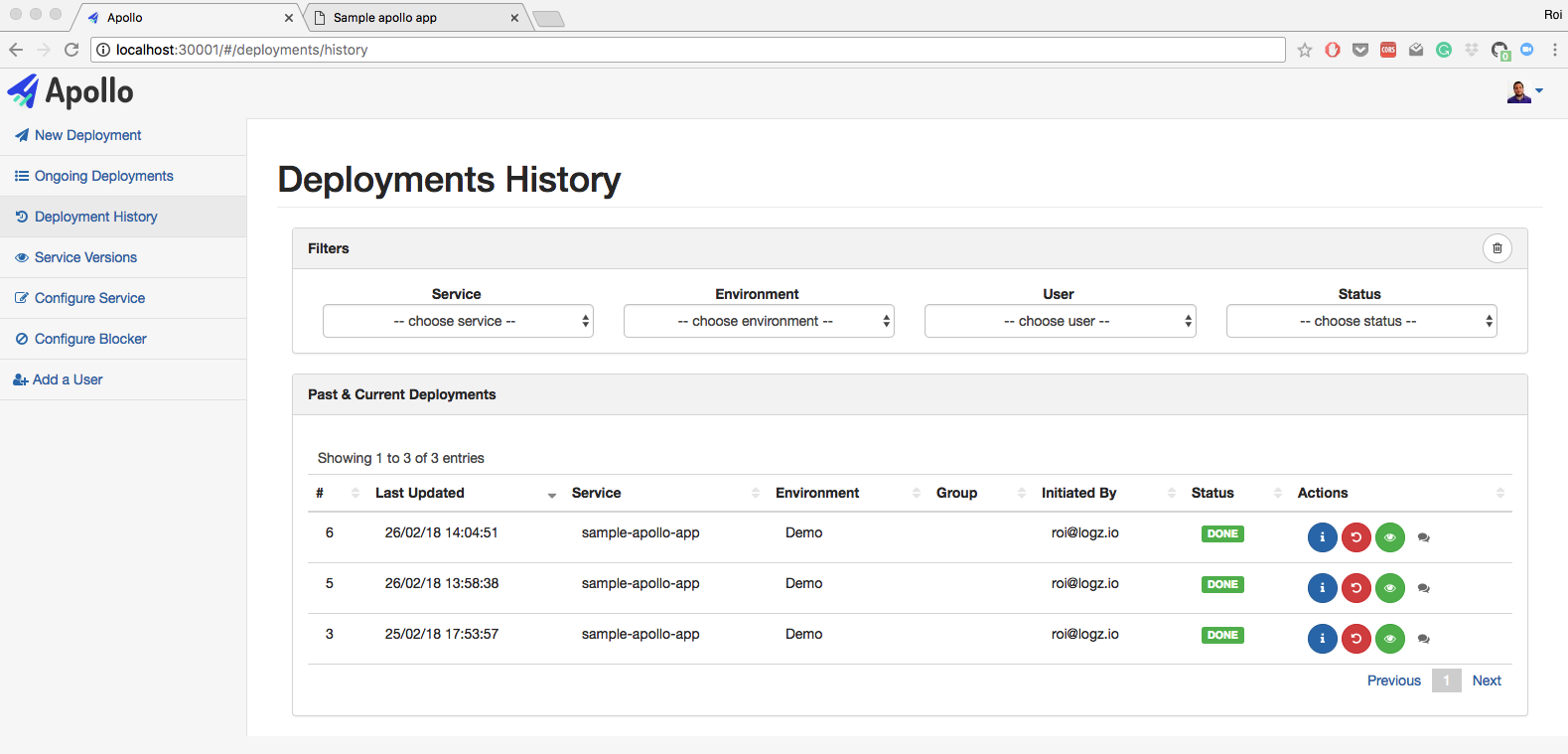
#### Set up deployment blockers
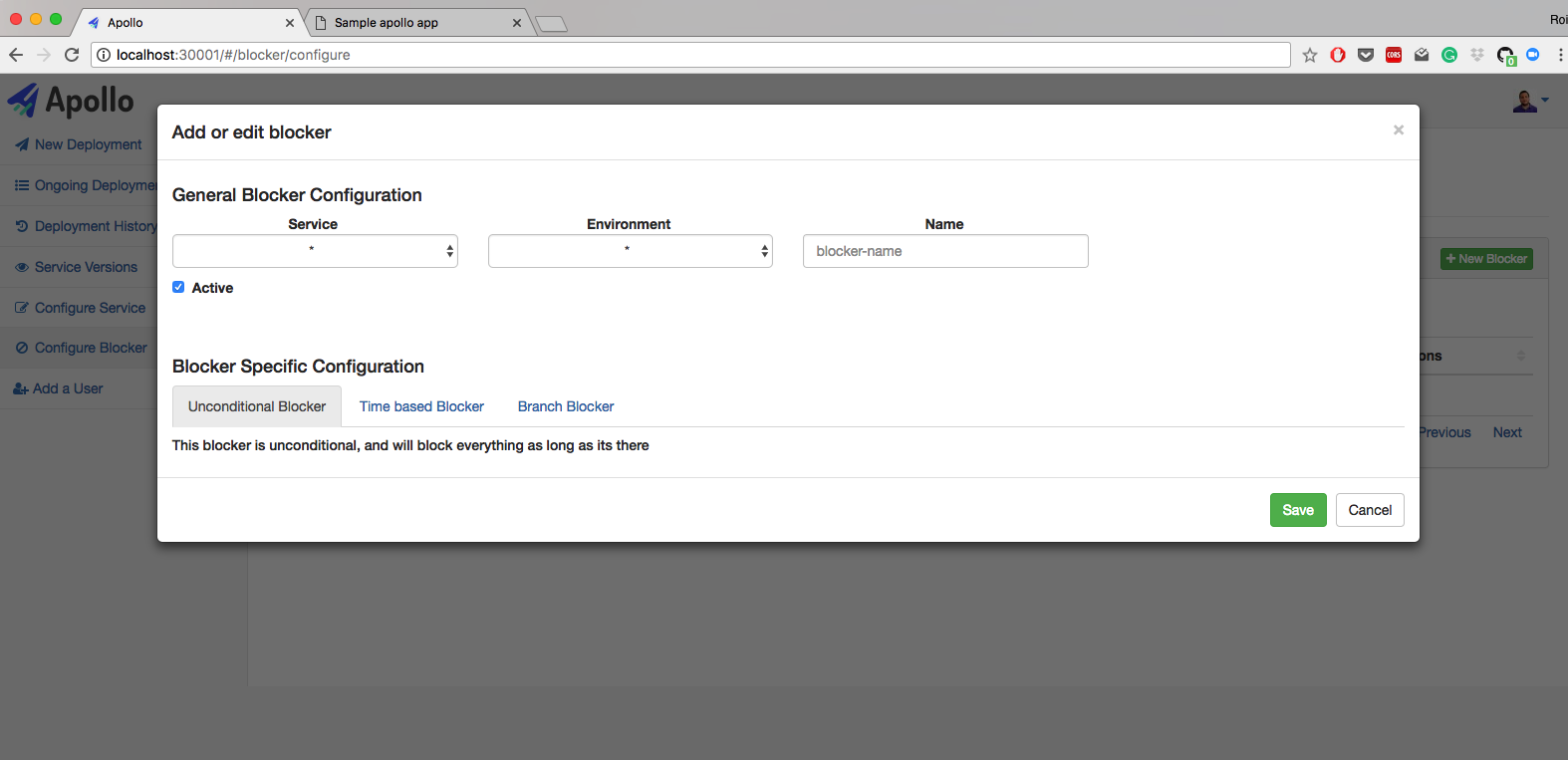
### Run it
Apollo requires a HOCON format configuration file to get all of its resources. Configurations can be supplied as a Filesystem path or as a Consul Key.
Configuration example:
```hocon
apollo {
db { # Self explanatory
port = 3306
host = "..."
user = "apollo"
password = "..."
schema = "apollo"
}
api {
listen = "0.0.0.0" # Where should apollo backend listen
port = 8081 # And on which port
secret = "SuperTestingSecret" # Secret to encrypt websessions with
}
kubernetes {
monitoringFrequencySeconds = 5 # How frequent should the apollo's kubernetes monitoring thread check the deployment statuses
}
scm {
githubLogin = "" # Github user (in case you need private repositories access)
githubOauthToken = "" # Access token created in your user settings. Should have view access for private repos
}
}
```
Under `examples` you can find a simple Docker Compose to help you set it up locally
```bash
cd examples/
docker-compose up -d
```
### Contributing
Fork away, commit, and send a pull request.